Expert witnesses play a critical role in legal cases. They offer specialized knowledge that can make or break a case. However, understanding how expert witness fees and billing work is essential for both attorneys and clients. This article will guide you through the factors influencing expert witness fees, common billing structures, and best practices to ensure fair and transparent compensation.

Factors That Influence Expert Witness Fees
When determining expert witness fees, several factors come into play. These factors can influence the cost of an expert’s services, making it important to consider them upfront. Below are the main factors that typically affect expert witness fees:
Expertise and Qualifications of the Expert
The more experienced and specialized the expert, the higher their fees are likely to be. Experts with rare qualifications or certifications, or those with a reputation for success, can command higher rates.
Complexity of the Case
Complex cases requiring deeper analysis or technical expertise will usually result in higher fees. For example, medical malpractice cases or complex financial disputes often involve higher fees due to the level of expertise needed.
Location and Travel Requirements
If the expert needs to travel to provide their services, travel costs will be added to the fees. This can include airfare, hotel accommodations, and per diem allowances for meals and incidental expenses.
Duration of Involvement
The length of time an expert is involved in a case impacts their fees. Cases that require months of analysis or multiple court appearances will generally cost more than those that require a few hours of consultation.
Type of Case
The type of legal case can also influence expert witness fees. For instance, criminal cases, civil disputes, family law cases, or personal injury claims may require experts with different specializations, leading to varied fees.
Common Expert Witness Fee Structures
Expert witness fees are often structured in different ways, depending on the case and agreement. Understanding these structures helps both attorneys and clients plan for the financial aspects of hiring an expert witness.
Hourly Rates
The most common fee structure for expert witnesses is an hourly rate. Experts charge for the time they spend on the case, including research, consultations, and preparation. Hourly rates vary significantly based on the expert’s field and location.
Flat Expert Witness Fees
In some cases, expert witnesses charge flat fees. This is often for straightforward cases where the scope of the work is clearly defined upfront. A flat fee can provide predictability for budgeting and billing.
Retainers
Experts may request a retainer fee, which is an advance payment for their services. This fee is typically deducted from the overall cost as work is completed. Retainers can help ensure the expert’s time and availability throughout the case.
Contingency Fees
In certain cases, experts may agree to work for a contingency fee, which means they get paid only if the case is won. This is less common and typically used in personal injury or other cases where a monetary award is likely.
Per Diem Rates
In some cases, experts charge a per diem rate for each day they spend working on the case. This may cover time spent traveling, attending depositions, or sitting in court.
Other Billing Arrangements
There are other, less common fee structures that may be used. For example, experts may charge based on specific deliverables, like a written report or testimony at trial. It’s important to discuss these arrangements ahead of time to avoid misunderstandings later.
How to Set Expert Witness Fees
Setting fair and transparent expert witness fees is crucial for both parties involved. It ensures there is no confusion or frustration when it comes to billing. Below are some key steps for setting appropriate fees.
Understanding the Market Rate
Before settling on a fee, it’s important to research and understand the market rate for expert witnesses in the relevant field. Rates can vary widely, so doing some research can help you set a competitive yet fair rate.
Researching Standard Rates Within the Industry or Specialty
Different industries or specialties have different fee norms. For example, a forensic accountant may charge more than a general medical expert. Understanding the going rates within the specific area of expertise is important for both fairness and transparency.
Setting Fees Based on Case Scope
When negotiating fees, both the expert and the hiring party should have a clear understanding of the case’s complexity and scope. Fees should reflect the level of involvement expected. For example, a case that involves ongoing consultations, depositions, and court appearances will require a higher fee than one that involves only an initial consultation.
Importance of a Clear, Written Agreement on Fees
It’s always a good idea to outline the fee structure in writing before work begins. This agreement should cover the hourly rate, any retainer fees, expenses, and payment schedules. A clear contract ensures that both parties are aligned on expectations and can prevent potential disputes later.
Additional Costs Associated with Expert Witness Work
In addition to the basic fees charged by expert witnesses, other costs often need to be considered. These additional costs can add up quickly, so it’s essential to understand them ahead of time.
Travel and Accommodation Expenses
If the expert needs to travel for the case, travel and accommodation expenses will typically be billed separately. These expenses might include:
- Airfare: Costs of flights, which can vary depending on location and class of service.
- Hotel Accommodations: The cost of staying in a hotel for multiple nights.
- Meals: Per diem rates or reimbursement for meals during travel.
- Ground Transportation: Costs for taxis, car rentals, or mileage reimbursement.
Administrative Fees
Some experts charge additional administrative fees for the time spent on administrative tasks. These can include organizing documents, managing communications, or coordinating schedules. It’s important to ask whether these fees are included in the hourly rate or charged separately.
Report Preparation
Many experts charge for the time it takes to prepare reports that summarize their findings or opinions. Preparing detailed, professional reports can be time-consuming, so it’s often billed separately. Fees for report writing can vary depending on the complexity and length of the report.
Depositions and Court Appearances
Additional charges will apply if the expert is required to attend a deposition or testify in court. These fees often include the expert’s time spent preparing for the testimony and time spent in court or at the deposition. Experts may also charge for travel time if they must be present in person.
Potential Costs for Specialized Tests or Evaluations
Certain cases may require specialized tests or evaluations, such as forensic or medical evaluations. Experts may need to hire additional professionals or purchase equipment to conduct these tests. These costs are typically passed along to the client. Make sure to clarify whether these expenses are included in the expert’s fee or billed separately.

Best Practices for Transparent Billing
Clear communication about billing practices is essential for a smooth working relationship between clients, attorneys, and expert witnesses. Transparent billing helps avoid confusion and ensures everyone is on the same page.
Providing an Upfront Estimate of Total Fees
Before an expert begins working on the case, providing a rough estimate of the total fees is helpful. This gives the client a clear idea of the financial commitment involved. Of course, this estimate can change based on the case’s complexity, but an estimate offers some predictability.
Breaking Down Services and Charges
Experts should provide a detailed breakdown of their charges. This includes:
- Hourly rate and estimated number of hours for each service
- Expenses for travel, reports, or specialized tests
- Any additional fees for court appearances or depositions
The client and attorney can understand where the money is going and how it contributes to the overall case by offering a precise breakdown.
Regular Updates on Hours Worked and Expenses Incurred
Experts should regularly update clients on the hours worked and any additional expenses incurred throughout the case. This way, clients won’t be surprised by a large bill at the end of the case. Regular updates ensure that there is no ambiguity regarding costs.
Ensuring Clarity on Payment Terms and Expectations
Having clear terms on when and how payment is expected is crucial. Discuss payment methods (check, wire transfer, etc.) and set specific payment deadlines, whether upfront or in installments. Having these terms in writing can prevent misunderstandings down the road.
Legal and Ethical Considerations in Expert Witness Billing
Important legal and ethical considerations must be considered when setting expert witness fees. Adhering to these guidelines ensures that the expert maintains professional integrity and that the billing process remains fair.
Avoiding Conflicts of Interest
Experts must avoid conflicts of interest when taking on a case. This means they should disclose any personal or professional connections to the parties involved that might affect their impartiality. Transparency in this area is essential to maintain the credibility of their testimony.
Ethical Guidelines for Expert Witnesses
Experts are held to a high ethical standard, particularly regarding the accuracy of their testimony and reports. They must provide unbiased opinions based on facts, not personal interests or financial gain. Charging for services should also reflect fairness and professionalism.
Ensuring Expert Witness Fees Align with Professional Standards
Expert fees must align with industry standards and are justified based on the expert’s qualifications and the work involved. Excessively high fees or questionable billing practices could lead to legal challenges or damage to the expert’s reputation.
Addressing Disputes or Disagreements Over Billing
Billing disputes can arise, especially if there is confusion about charges or payment terms. In these cases, the expert should be ready to provide a detailed explanation of the fees. It’s often helpful to have an agreement outlining how disputes will be resolved, whether through mediation, arbitration, or another process.
How Clients Can Minimize Expert Witness Fees
While expert witness fees can be significant, there are ways clients and attorneys can minimize these costs. Being strategic about how and when experts are involved can help keep expenses in check while still ensuring the case receives the expert attention it needs.
Choosing the Right Expert for the Case
One of the most effective ways to manage expert witness fees is by choosing the right expert for the case. Consider:
- Expertise level: You don’t need a high-profile, highly expensive expert if the case doesn’t require that level of expertise. An expert with the right qualifications for the specific case may be more cost-effective.
- Experience with similar cases: Experts who are familiar with similar cases may be able to work more efficiently, saving both time and money.
- Local experts: Local experts may have lower fees compared to those who need to travel long distances.
Negotiating Fees Before Hiring
Before hiring an expert, discuss the fees and services in detail. Don’t be afraid to negotiate a reasonable rate or ask for discounts based on the scope of work. Some experts may be willing to lower their rates for cases that are likely to last a short time or require less work than usual.
Managing the Scope of Work
Clearly define the expert’s role from the start. Managing the scope of work ensures the expert does only what’s necessary. For example:
- Limit the amount of time spent on the case unless absolutely necessary.
- Prioritize essential tasks: Have the expert focus on the most critical aspects of the case, such as preparing for trial or providing testimony, rather than extra work that might not be needed.
By managing the scope of the expert’s involvement, clients can keep costs down.
Limiting Unnecessary Involvement
Another way to minimize fees is to limit the expert’s involvement to only what’s required. For example:
- Avoid over-consultation: If the expert’s services are needed only for one specific task, don’t schedule unnecessary meetings.
- Group meetings or calls: Instead of multiple one-on-one sessions, try to consolidate meetings with the expert to address multiple points in one go.
This helps ensure that the expert’s time and billing are spent on things that will directly contribute to the case.
Breaking It All Down
Expert witness fees and billing can be complex, but understanding the key factors and best practices can ensure a fair and transparent process for everyone involved. By considering the factors that influence fees, selecting the right billing structure, and managing costs through clear communication, clients can make informed decisions.
Fair compensation for expert witnesses is vital, but it’s equally important to ensure that the process is clear and upfront to avoid any surprises down the road. Whether you’re an attorney or a client, keeping open lines of communication and setting expectations early can help minimize confusion and keep costs manageable.
By following these guidelines, clients can work with expert witnesses effectively while ensuring that their fees remain reasonable and aligned with the needs of the case.
Frequently Asked Questions
What qualifications should I look for in an expert witness?
When selecting medical expert witness services, one must consider their educational background, professional certifications, and experience in the relevant field. Look for someone with a proven track record in similar cases and a reputation for providing explicit, unbiased opinions. Their qualifications should be aligned with the specific needs of your case.
Can expert witnesses be charged for time spent outside of the courtroom?
Yes, expert witnesses can charge for time spent on tasks outside the courtroom, such as research, report writing, consultations, and preparation for depositions. These charges are typically outlined in the expert’s fee agreement.
Are expert witness fees negotiable?
Yes, expert witness fees are often negotiable. While some experts have set rates, discussing fees before hiring them is possible. Negotiating can help ensure that the costs align with your budget and the scope of work required for the case.
What happens if there is a dispute over expert witness fees?
If a dispute arises over fees, it is essential to review the written agreement between the expert and the client. Many experts include dispute resolution clauses in their contracts, which may involve mediation or arbitration. Open communication and detailed explanations of charges can help resolve conflicts quickly.
Do expert witnesses charge for travel time?
Yes, many expert witnesses charge for travel time, particularly if they need to travel to attend depositions, hearings, or court appearances. Travel time is usually billed at the expert’s hourly rate, or a specific per diem rate, and travel-related expenses (such as airfare and accommodations) may also be charged separately.
Are there any ethical guidelines for expert witnesses regarding their fees?
Yes, expert witnesses must adhere to ethical guidelines that ensure fairness and transparency in their billing practices. They must avoid charging excessive fees, disclosing any potential conflicts of interest, and ensuring that their work is impartial and focused on providing accurate, unbiased testimony.
How can I minimize the risk of unexpected costs with expert witnesses?
To minimize unexpected costs, make sure to have an explicit, written agreement in place before hiring the expert. This agreement should outline the fee structure, payment terms, and additional costs, such as travel or report preparation. Regular updates on hours worked and expenses incurred can also help avoid surprises.
What should be included in the expert witness agreement?
An expert witness agreement should clearly outline the scope of work, the agreed-upon fees, payment terms, and any additional expenses. It should also specify how travel, court appearances, and report preparation will be handled. Additionally, include terms for managing any disputes or disagreements over fees.
Do all expert witnesses charge for report writing?
Most expert witnesses are charged with writing reports, which can be time-intensive. However, it’s essential to clarify this before engaging their services. Some experts may include report writing in their hourly rate, while others may charge it as an additional cost.
Can expert witnesses offer their services on a contingency basis?
While rare, some expert witnesses may agree to work on a contingency basis, meaning they only get paid if the case is successful. This arrangement is more common in personal injury cases or other cases with a financial settlement or judgment. However, this should be clearly outlined and agreed upon in advance.
Offsite Resources For You
American Academy of Expert Witnesses: www.aaew.org – A valuable resource for finding qualified expert witnesses and understanding best practices for expert testimony.
National Association of Legal Experts: www.nale.org – Provides resources on expert witness services, including directory listings and professional guidelines.
Forensic Expert Witness Association: www.forensicexpert.org – Offers resources for both experts and attorneys, focusing on ethics, best practices, and expert witness guidelines.
American Bar Association (ABA): www.americanbar.org – A comprehensive resource for attorneys and clients, providing information on legal processes, including expert witness rules and standards.
National Association of Certified Valuators and Analysts: www.nacva.com – Useful for clients looking for financial expert witnesses, providing guidance on fees and compensation for business valuation experts.
Institute of Legal Finance & Management: www.ilfm.org.uk – Offers insight into the financial aspects of legal cases, including how to budget for expert witness fees and manage costs.

What's Next?
If you’re ready to take the next step or have any questions about expert witness fees or your legal needs, don’t hesitate to get in touch with us. Our team is here to guide you through every step of the process. Visit our contact page today or call 1-833-465-7463 to schedule a consultation or to learn more about how we can assist you. We look forward to helping you!

